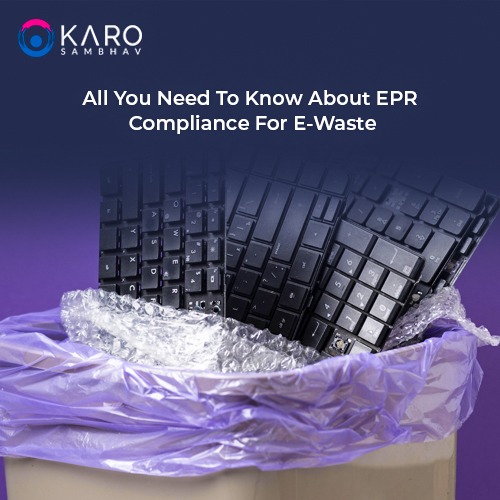Going Beyond Disposal: Battery Waste Solutions
Contemporary days are mostly
geared toward technological advancement, and batteries play a crucial role in
the whole game. Batteries tend to become an intrinsic part of daily lives,
amping everything from smartphones to electric vehicles. However, a significant
thing to be noted is, with the advancing need for batteries, there also comes a
pressing environmental concern - battery waste. As the need for electronic
devices continues to increase, so does the demand for effective battery waste management
solutions. Here you will get hold of a comprehensive explanation of the
significance of going beyond mere disposal and indulging in unique approaches
like Extended Producer Responsibility (EPR) and battery waste recycling.
Since batteries contain harmful
components, disposing of them has historically posed a serious environmental
risk. The end-user loses control of waste management to the producer with the
help of the Extended Producer Responsibility (EPR) regulation initiative.
Programmes known as Extended Product Life (EPR) force manufacturers to handle
all aspects of a battery's life cycle, including recycling and appropriate
disposal.
Battery authorization and used
battery collection systems set up are necessary for manufacturers to use EPR
for batteries. This minimises the impact on the environment and advances
circular economy by ensuring that batteries are managed properly from manufacturing
to disposal. Governments all throughout the world are seeing how important EPR
is to reducing battery waste, and laws are being passed to make manufacturers
responsible for the environmental impact of their products.
Battery Waste Recycling: Closing
the Loop
While EPR manages the
accountability aspect, battery waste recycling
plays an important role in closing the loop and reducing the environmental
effect of discarded batteries. The recycling process deals with extracting
valuable materials like cobalt, lithium, and nickel from used batteries and
repurposing them for new battery production. This process is extremely helpful
in conserving precious resources and also lessening the need for
environmentally destructive mining practices.
In addition to resource
conservation, battery waste recycling obstructs the release of harmful
substances into the environment. Wrong disposal of batteries can lead to soil
and water contamination, posing serious threats to ecosystems and human health.
By supporting advanced recycling technologies, people can immensely decrease
the environmental hazards linked with battery waste.
The Future of Battery Waste
Management
It is essential that we adopt
complete battery waste management solutions as we work towards a sustainable
future. Important roles in this endeavour are played by producers, consumers,
and governments. Manufacturers have the power to reduce the environmental
impact of their products by spearheading the implementation of Environmental
Product Responsibility (EPR) programmes. At the same time, customers can help
by properly discarding their old batteries at approved locations.



Comments
Post a Comment